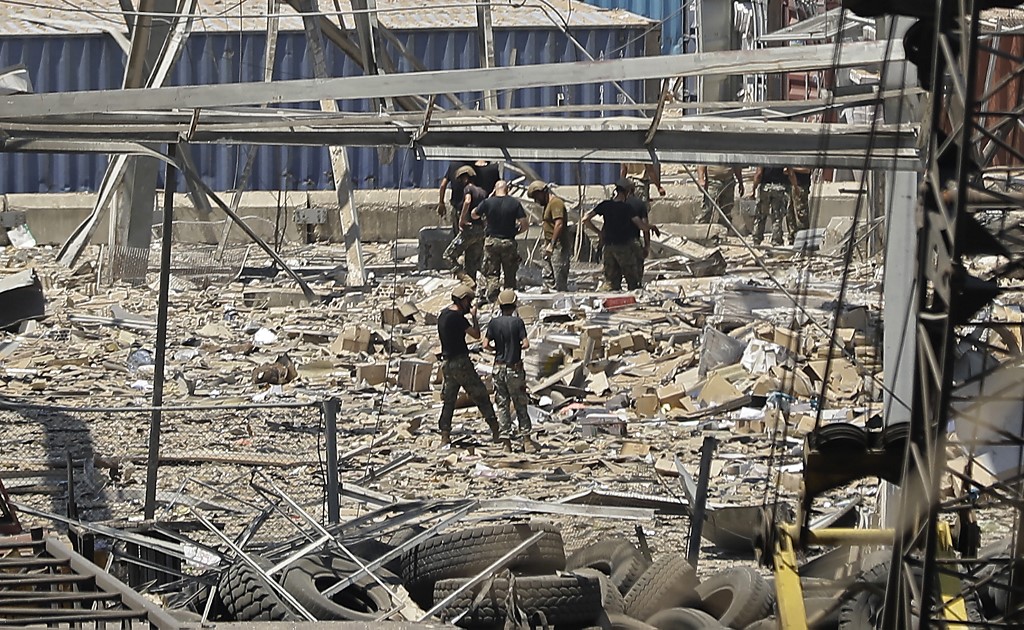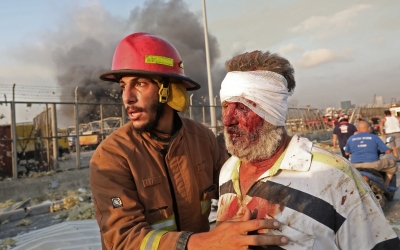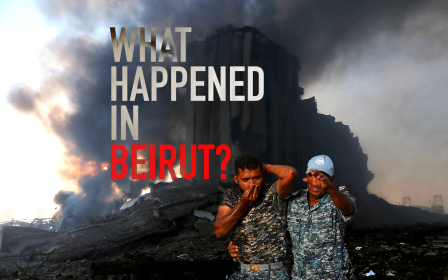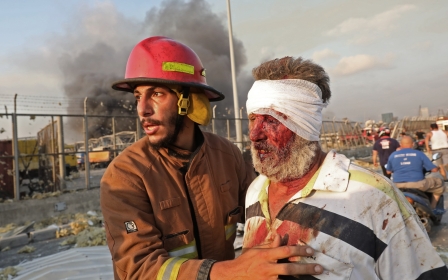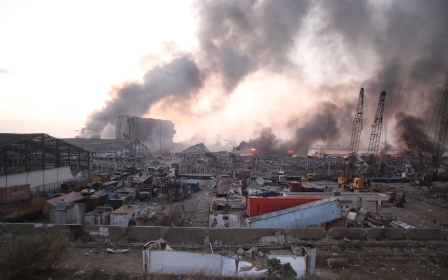Beirut blast: The final explosion of an evil state
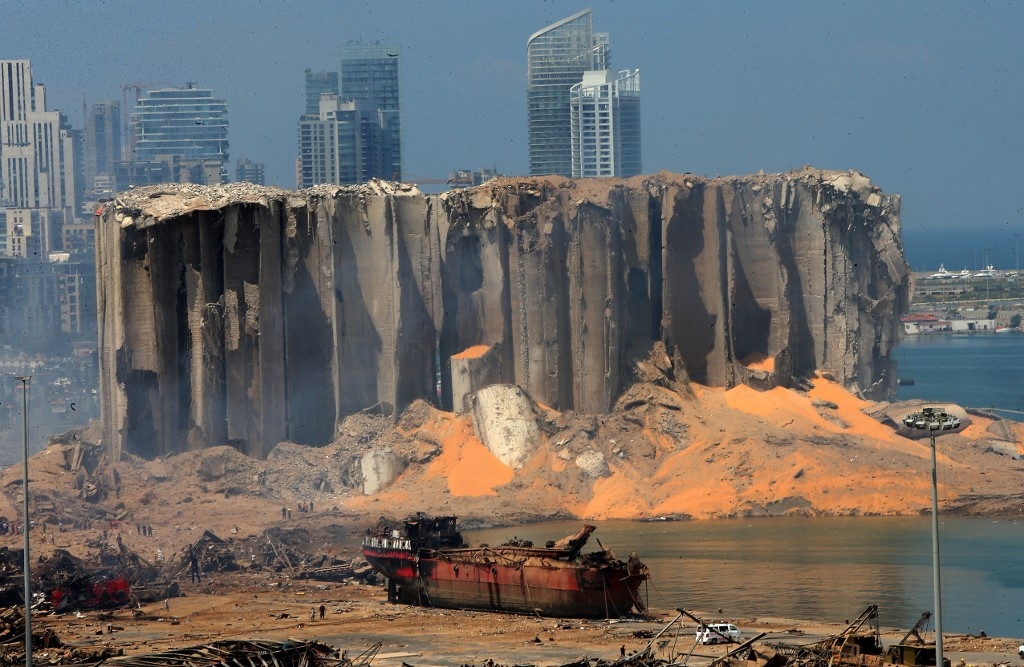
The devil was prowling there, right next to us, for years. It was no less than a weapon of mass destruction: 2,750 tonnes of confiscated ammonium nitrate stocked next to Lebanon's main wheat silos, overlooking the coastal highway that thousands use on a daily basis.
The devil was silently waiting for its moment. It was an urban time bomb waiting to seize the charming Gemmayzeh area and the lively Mar Mikhael, and those who pass by every day to earn their living. It was not even a hidden secret.
The city is a scene of collective punishment; a chemical aggression against ordinary people
On 4 August, a science-fiction apocalypse hit the Port of Beirut. Another known secret of this port is that it lost its national sovereignty a long time ago, falling into the hands of a mix of "public" and "private" mafias.
This years-old stockpile of ammonium nitrate was the final tipping point, coming amid the coronavirus lockdown, unprecedented financial and economic collapse, the mummification of political life and the emergence of a new governmental cynicism: technocratism. The chemical cyclone took from Beirut everything that was still alive and vibrant, against all odds.
Six kilometres from the site of the explosion, where I live with my family, it at first felt like an earthquake shook our building. The next sensation was closer to how previous missile attacks have felt. When it was over, we were confronted with our new reality - an unimaginable catastrophe.
New MEE newsletter: Jerusalem Dispatch
Sign up to get the latest insights and analysis on Israel-Palestine, alongside Turkey Unpacked and other MEE newsletters
I write these words after having visited the city's horrifically demolished neighbourhoods. The city is a scene of collective punishment; a chemical aggression against ordinary people. Some civilians remain missing amid the rubble, and it will take days before a final death toll is issued.
Shameless lies
How did we end up here? I do not have the answer right now. What I know is that evil has taken the form and character of a non-sovereign, irresponsible, criminal state that is hostile to its own population and the cultural urban fabric that makes Beirut a unique Mediterranean city.
I'd like to think that the model of this dysfunctional and evil state, taking the form of a chemical mushroom, is what exploded in the harbour. This state and its structure - not just its political system - has been threatening the health of the people and belittling their dignity, while mastering the art of fundraising and knocking on the doors of the international community.
In the wake of the explosion, the pillars of this criminal, oligarchic state continue to lie shamelessly. The media controlled by this oligarchy is also playing its part, highlighting relief aid and preparing for the upcoming visit of the French president.
Now what? The prospect of a new uprising in the immediate aftermath of this incident is far fetched. But we should not delude ourselves into believing that this brutal, criminal state will succeed in making its populace a lifeless corpse.
The most dangerous narrative haunting us today is the suggestion that this was a natural disaster. It was an environmental catastrophe, yes; but it represents a political catastrophe of enormous scale, and this should not be obliterated by hypocritical humanitarianism.
Ruling madness
After the initial shock, I found myself searching for pictures of the Port of Beirut at the end of the Ottoman era, in the days of Abdul Hamid II, the Ottoman sultan who oversaw the development of the port and the city that made it the capital of the Vilayet of Beirut along the Eastern Mediterranean coast.
The sultan followed the work of early professional photographers, asking them to update him on Beirut by sending pictures to Yildiz Palace.
Such a difference we see between the responsible sultan and the ruling madness of today. Upon the centenary of the establishment of Greater Lebanon, the port explosion comes as a reinforcement of this comparison between the Levantine Beirut during the Hamid era, and the mass destruction in the last gasps of this oligarchic regime.
The views expressed in this article belong to the author and do not necessarily reflect the editorial policy of Middle East Eye.
This article is available in French on Middle East Eye French edition.
Middle East Eye delivers independent and unrivalled coverage and analysis of the Middle East, North Africa and beyond. To learn more about republishing this content and the associated fees, please fill out this form. More about MEE can be found here.



